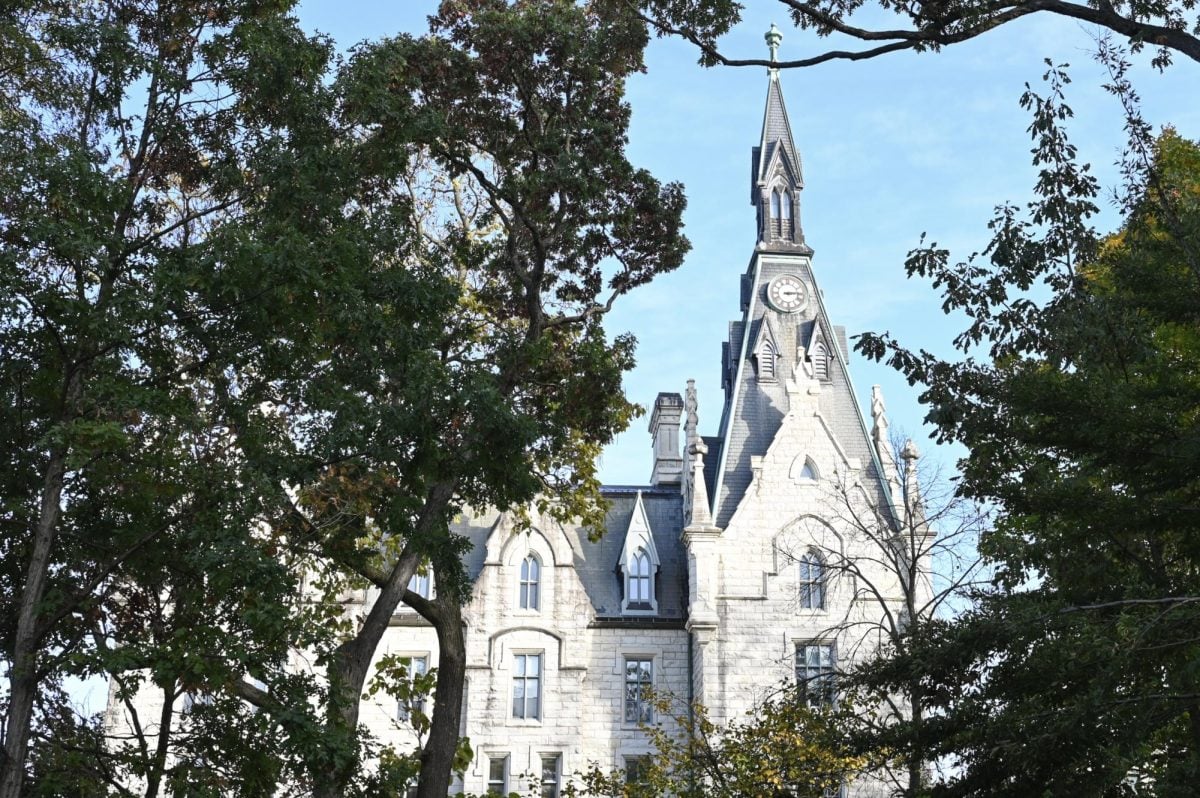This weekend, a group of students will gather in a Kresge Hall classroom — not to study for a midterm — instead they will learn about the Chicago Transit Authority.
This initiative is part of Rural and Small Towns Northwestern’s programming to support students from less populated areas. In particular, the session aims to acclimate them to the CTA trains and buses.
The organization exemplifies just one way the University community is changing to meet rising numbers of students from sparsely populated or less accessible areas.
NU’s class of 2028 saw a 40% rise in the number of students from rural and small-town high schools in the U.S., coinciding with the increase in student support groups and institutionally-led initiatives. The University, which does not publish disaggregated admissions data, declined to comment on the specific number of admits from these areas.
SESP senior and Rural and Small Towns NU founder Adrienne Scheide said the idea for an organization connecting students from these areas arose during a conversation with her peers.
“I wished that I had more people that could relate to my experience,” Scheide said. “I was like, ‘You know, we could make a club for this,’ so it would be easier to find people to talk about these experiences and also create resources for them.”
Scheide, who grew up in Wisconsin Rapids, Wisconsin, likened moving to Evanston and the Chicago area to discovering “a whole new world.” They recalled their freshman self being amazed at the amount of restaurant options around campus and that they could walk to the grocery store.
Though she said she found the change exciting, she noted that other students from similar backgrounds could feel overwhelmed by the newness and scale of a bigger environment.
“Resources, in a general sense, can be even more difficult to navigate because there are so many options,” Scheide said. “It’s just a lot when you didn’t have those options before.”
There is also institutional support for students from outside major cities and suburbs through the University’s involvement in the Small Town and Rural Students College Network.
Started in 2023, STARS’ mission is to provide the support students from small towns need to enroll in and graduate from their selected college or university.
The coalition, of which NU is a founding member, welcomed 16 new partners in July, including Dartmouth College, Stanford University and the University of California, Berkeley. Fall STARS programming has been ongoing for several months.
“Fall activities include a lot of rural travel — some of it Northwestern-only and much of it with groups of colleagues from other institutions,” University spokesperson Amy Lee told The Daily in an email.
Lee added that 26 high school counselors from rural areas registered for an August STARS program involving college campus tours and workshops about admissions.
Eligible students will be offered NU application fee waivers disseminated through college-access partners, Lee said.
In addition, Lee said NU was “excited” to host a second iteration of the Small Town and Rural Teen University Prep Innovation Intensive in collaboration with The Garage. The free, three-day program invites rising high school seniors to experience entrepreneurship and innovation.
Scheide shared that Rural and Small Towns NU collaborated with admissions officers during the last application cycle to support newly-accepted students through discussions and outreach.
Weinberg sophomore and Rural and Small Towns NU member Sofia Best participated in a panel welcoming prospective students.
Best has been a part of the club since its inception and noted that, aside from the work with admissions, a memorable experience with the organization was the last iteration of the CTA workshop.
She grew up in Morris, Illinois, surrounded by farmland. She said it was overwhelming to be surrounded by many new people, especially after having the same classmates for several years.
“It’s been really nice to just connect with people, just to be like, ‘Yep, my hometown did not have a (public) bus,’” Best said. “It was nice just to have that camaraderie and to have that shared experience.”
Scheide, who serves as the organization’s co-president alongside Medill sophomore and Daily staffer Lydia Plahn, said they are most proud of the club becoming a space to validate students’ experiences regarding their hometowns.
However, Scheide added that students from these areas can choose the degree to which they engage with the organization.
“There are other people here from similar backgrounds, and you’re not gonna have to search for it,” Scheide said. “We’re just here, and if they choose to engage with (the club), they choose to engage with it.”
Email: beavillaflor@u.northwestern.edu
Related Stories:
— Northwestern sees increases in underrepresented minorities in latest class admission data
— ‘creating small thunder’ brings queer, rural story to Northwestern opera







